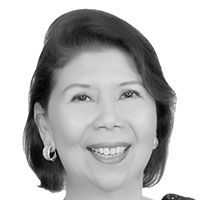Smile, you’re on hidden camera

From time to time, I get a glimpse of all the other returning and recycled political candidates and I recognize some of them who have turned campaigns and elections into a profitable undertaking or a seasonal business of sorts.
Through the years, we have all seen, heard and watched certain characters file their COCs and then get busy with solicitation and fund-raising campaigns. While we all want to think that true candidates get their support from friends and supporters, we also know that other candidates get their money from “investors” and “lords” of every kind, who place money on every candidate that comes knocking.
It’s hard to say no or offend such individuals, so some businessmen give partial contributions and promise more if the “candidate” gets into the surveys or the ballot. Other businessmen simply time their annual vacation during this time of the year.
But one thing I found interesting from past elections is how certain “investors” have made efforts to document, record or track the visiting candidate or the turnover of campaign funds. It seems that some candidates who won in the past elections quickly forgot who supported them and maligned the lords and corporations in Congress or on social media. So just to play safe, they have them “on candid camera.”
* * *
Unlike past elections when election issues were around economics, employment and peace and order, it feels like 2025 will be about medicine, public health and related matters such as funding and coverage for PhilHealth.
At least one incumbent party-list representative who is running for senator, Rep. Wilbert Lee, has added PhilHealth coverage and funding to his agenda and narrative. Incumbent Senator Bong Go, of course, has anchored much of his term as senator on health, particularly public hospitals and his program, the Malasakit Centers or hospital assistance centers.
Congresswoman Janet Garin has also concentrated on public health issues and legislations over the years and her familiarity with the DOH, public health as well as politics has served her well as she tackled issues on PhilHealth, necessary legislative revisions and pushing for preventive medicine.
Hoping to join this circle is Dr. Eric Tayag, who has been an icon of the DOH for healthy lifestyle and now with the Philippine Foundation for Vaccination. If Dr. Tayag pushes through in his quest for a party-list seat under the Heal PH Party-list, he will probably be one of the most, if not the most, informed and experienced in public health matters.
As far as “possible doctors in the Senate” are concerned, Dra. Minguita Padilla, who has dedicated 37 years to ophthalmology with 27 years in establishing the Eye Bank Foundation. Given rising cases involving eye diseases and defects, many caused by immersion in digital technology, it certainly is time for such challenges to be addressed by trained medical experts and social activists.
While public health has not been a sexy or popular topic during elections, a doctor and member of the academe shared with me some information stating that for 2023 to 2030, a study suggests that the Philippines will have a total shortage of several million health workers (doctors, nurses, lab technicians, etc.) nationwide. The doctor/professor also said that an estimated 79 percent of nursing students fail the course or don’t finish the course due to poor academic performance or financial constraints.
He also mentioned that approximately 50 percent fail in the licensure exam or have to take the exams twice or thrice. This ends up as additional cost in terms of tutorial courses.
Just this week, while attending the multisectoral governance committee meeting at the Rizal Medical Center, I learned that many hospitals are already having problems recruiting nurses, others have difficulty retaining nurses once they have received their certificates of training, while other nurses leave government hospitals because most of their work status are based on temporary job orders.
Aside from such challenges, the most active and convincing “recruiters” are not some foreign European company or NGO, but Filipino nurses who are working in hospitals abroad. As I explained in a previous column, we can’t blame the nurses for wanting to leave because many of them have to pay back money they borrowed for tuition fees or make up for the financial sacrifices made by their entire family.
Last time we looked into the cost of pursuing a degree in nursing, we learned that the cost to send a student to a state university, inclusive of food, dorm, travel expense, etc., was around P500,000 or half a million pesos for a four- to five-year run. If the student were to enroll in a private university outside Metro Manila, the estimated total was around P1,200,000. This is why nurses want to leave as soon as possible.
Aside from the usual controversies and topics, the top two concerns are the shortage of hospitals or a massive development plan to build hospitals in key areas with more than enough space for future expansion. The second public health agenda should be the promotion of a healthy lifestyle and preventive medicine.
Until Filipinos learn to eat right, stay healthy and get rid of junk and sedentary lifestyle, we will never have enough dialysis machines, kidney donors, never enough to pay for chemotherapy and angioplasties. The Filipino’s major health challenges are mostly preventable diseases that can be avoided, starting from grade school upwards. But in order to achieve this, we and the government must have the will and desire to live healthy!
I suppose the doctor candidates have seen enough suffering and deaths and are now giving up their first love in order to promote good medicine and public health. Let’s all make it an election issue in 2025.
- Latest
- Trending




























